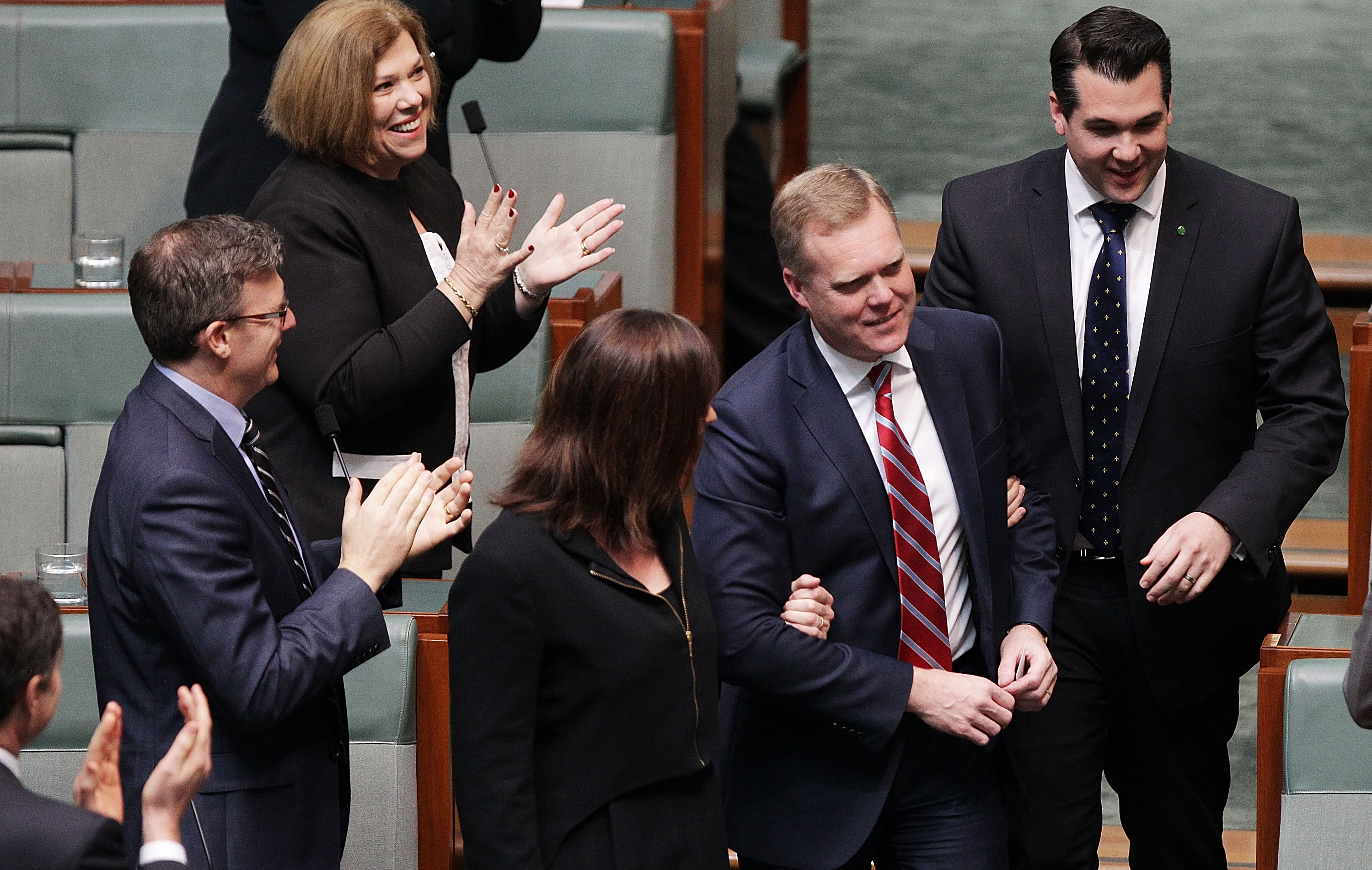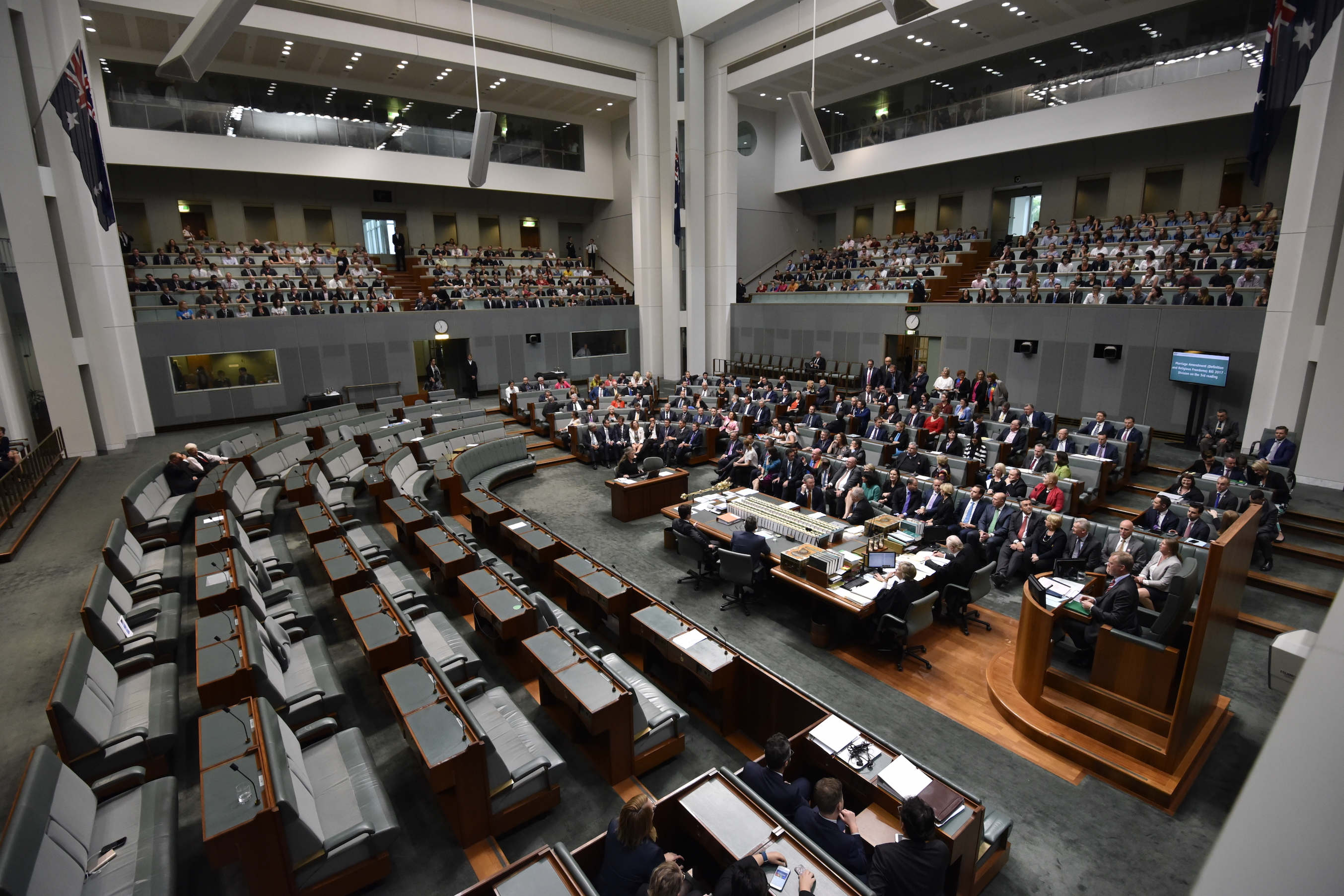
Politics & Society
Is our democracy broken?

Citizen juries, an independent speaker, and ensuring MPs get to sit with their opponents, not opposite them, are all proposals at the heart of a new push to improve how Australian democracy works
Published 30 April 2019
Imagine a federal parliament in which MPs don’t bark at their opponents on the other side of the table, but instead address the chamber from a lectern next to the Speaker. That Speaker would also be truly independent, serving in the role for a fixed term and appointed by a bipartisan panel, not by party colleagues.
And the MPs in the chamber wouldn’t sit in tight party groupings, rigidly divided on party lines, but instead would be seated in a random fashion based on a ballot system.

These are some of the ideas contained in an options paper endorsed by a 13-member panel that includes two former state premiers, John Brumby and Campbell Newman, and a former secretary of the Department of Prime Minister and Cabinet, Professor Peter Shergold.
The report, Reforming Our Democracy, was produced through a partnership of the University of Melbourne, the research group newDemocracy Foundation, and the Susan McKinnon Foundation, a philanthropic organisation and sponsor of the McKinnon Prize, an annual prize for political leadership.

Politics & Society
Is our democracy broken?
Professor Glyn Davis, Emeritus Professor at the Melbourne School of Government, and Professor Cheryl Saunders, Laureate Professor at the Melbourne Law School are also part of the panel.
Among the 15 options presented in the paper are proposals for longer parliamentary terms, a relaxation of party rules to allow more free votes by MPs, a maximum limit on political donations and real time disclosure of donations, limits on campaign spending, and a requirement for parties to publish their membership numbers and financial details each year.
Other suggestions include:
Professional training for ministers, MPs and ministerial staff
Tougher regulations on lobbying,
An independent process for senior appointments to the public service, the judiciary and major statutory bodies,
Updating the constitution through a two-year community-led constitutional convention process.

One of the report’s authors, principal fellow at the University’s Melbourne School of Government, Nick Reece, said the time was ripe for Australia to return to its roots as an innovative democracy.
“We know that there has been a worrying decline in Australians’ belief in our democracy, not just in the politicians’ performance but in our model of government. We think there needs to be a serious conversation about how we improve the system,” Mr Reece says.

Politics & Society
Is democracy dying before our eyes?
“Australia has a long history of great ingenuity in designing systems in governing ourselves and has truly led the world in many aspects of our current democratic system – the extension of voting rights, the secret ballot, the design of our federal system.
“Australia led the world by decades in producing many important reforms and yet for the last almost 100 years it seems that not much has changed. We’ve just been set-and-forget on our system.”
Mr Reece says the report’s authors weren’t trying to rewrite the rule book.
“What we’ve tried to do is be quite disciplined and come up with a list of practical and achievable reforms – some tweaks and changes – that could be undertaken by the next Parliament. We are just suggesting trials in many cases.”
On the proposal for changed seating arrangements to promote more civility in the Parliament, Mr Reece said seating arrangements have a big effect on behaviour.
“The Westminster parliamentary setup is designed in a way that encourages conflict. If you went to every other workplace in Australia, you’d find that they are designing spaces not for conflict but for conversation and consensus building.”
Mr Reece says the reforms listed in the paper aren’t based on ideology but on identifying problems and practical measures to fix them.

“These are modest proposals which are realistic and should be able to find bipartisan support in the next Parliament.’’
Likely to be among the most challenging of the proposals is the trialling of a citizens’ jury to prepare a report on a major topic, like tax reform, health funding or fair levels of welfare, which is then tabled in Parliament.
The executive director of the newDemocracy Foundation, Iain Walker, said that over the years it had become standard practice in Australia for changes in the democratic process to be driven by political leaders and that had contributed to the decline in public confidence in the system.

Politics & Society
The strong leaders
Mr Walker says his organisation had run about 25 citizen jury projects after recruiting a genuinely representative random cross-section of the community.
“The thing we’ve found consistently is that people want to have a say on the issues that affect them. If you give people something and they can see that it’s worth their time, then you can absolutely get people from all walks of life participating,” he says.
“Here’s the thing: If we’re wrong and we run a small trial and it doesn’t work, then we’re in exactly the same position we are today. But gee, it’s worth a try, isn’t it?”
Mr Walker says Australia was caught in a situation in which “everyone complains about the system, but no-one tries to change anything” and this has led governments to underperform.
“You look at each term of government and say ‘did that government achieve major reforms in areas that it cared about and prioritised?’ Generally the answer is ‘no’, because it’s difficult. And we think it’s stymied largely by the nature of the system, not by the nature of the people.
Systems we can fix, so that makes me an optimist.”
Banner image: James D. Morgan/Getty Images